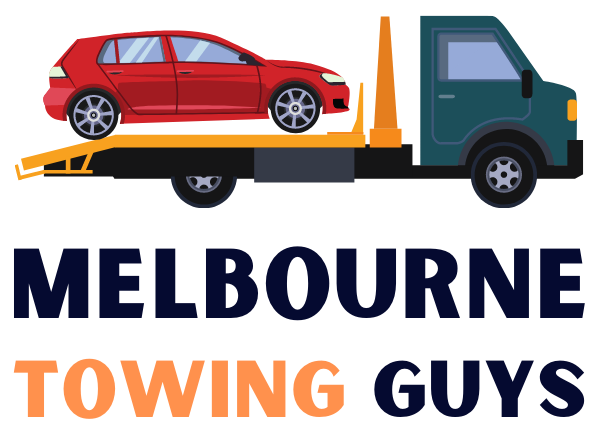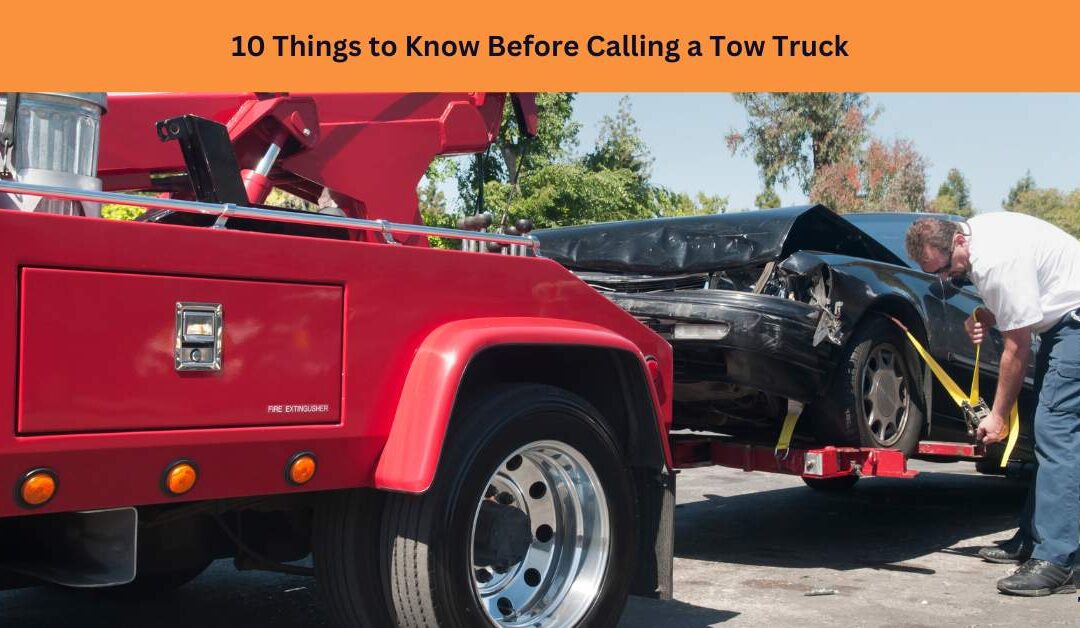Calling a tow truck can be stressful, whether you’re stranded on the highway, dealing with a mechanical issue, or involved in a minor accident. But being prepared and understanding the process can make things easier, faster, and potentially more cost-effective. Here are ten things to know before calling a tow truck to ensure you’re ready for any towing situation.
1. Know Your Location
One of the first things a tow truck company will ask is, “Where are you?” Knowing your precise location allows them to find you quickly and efficiently. If you’re on a highway, look for mile markers or nearby exits. In a city or rural area, use your smartphone’s GPS to determine your exact coordinates or share your location with a friend or family member who can help guide the towing company to you.
For faster response, use landmarks around you as reference points, such as nearby businesses, road intersections, or even identifiable structures like bridges or signs. The more specific you can be, the better, as it helps the tow truck operator navigate directly to you, saving you both time and stress.
2. Assess and Describe Your Vehicle’s Issue
Understanding your car’s issue, even at a basic level, can help you explain it to the towing company, ensuring they arrive with the right equipment for the job. Are you dealing with a flat tire, dead battery, or engine trouble? If your vehicle is inoperable due to a mechanical or electrical issue, that information can be essential to bring the appropriate tools or towing equipment.
Sometimes, you may require a specific type of tow. For instance, if your car has a major engine issue, it may need a flatbed for safer transport. Clearly describing the problem ensures that the towing service can address your needs without needing additional time to fetch the right tools or equipment after arrival.
3. Check Your Insurance or Roadside Assistance Coverage
Before you call a tow truck directly, check if you have roadside assistance coverage through your insurance provider or a membership program like AAA. Many insurance policies offer towing as part of comprehensive coverage, and these services can often be accessed with a simple call.
If you’re a member of a roadside assistance program, keep the number handy or save it on your phone for emergencies. Often, using your insurance or a roadside assistance service will cost less, and some programs offer added benefits, like vehicle repair discounts or help with car rentals. Understanding your options in advance can help you avoid out-of-pocket expenses.
4. Have Your Documentation Ready
Many towing companies will ask for documentation to verify ownership and ensure they’re towing the right vehicle. Keep your driver’s license, vehicle registration, and proof of insurance readily available. Having these documents handy makes the entire process more efficient and helps the towing company verify your information quickly, preventing unnecessary delays.
For additional convenience, consider keeping digital copies on your phone or in an easy-to-reach location in your vehicle. This simple preparation can save you time and give you peace of mind during an otherwise stressful experience.
5. Know Your Towing Options
Different types of towing methods suit different vehicles and situations. The three main types of towing are flatbed towing, wheel-lift towing, and dolly towing. Knowing which option suits your needs can help you make the right choice:
Flatbed Towing: Often the safest and most preferred method, especially for high-value or all-wheel-drive vehicles, as it keeps the car completely off the ground.
Wheel-Lift Towing: Uses a metal yoke to lift either the front or rear wheels off the ground, ideal for short-distance towing and lighter vehicles.
Dolly Towing: Suitable for short distances, this method lifts only the front wheels of the vehicle, often used for cars with front-wheel drive.
Discussing your towing options with the operator ensures your vehicle is handled safely. If in doubt, flatbed towing is usually a secure choice for almost all types of vehicles.
6. Inquire About the Tow Truck Company’s Rates and Fees
Towing rates vary widely, so it’s a good idea to ask for an estimate before committing. Many companies charge based on distance, type of tow, and time of day. Be aware of any additional charges, such as after-hours fees, weekend rates, or surcharges for long-distance tows.
It’s always beneficial to get a clear breakdown of costs over the phone. Some towing companies might also have a minimum charge regardless of the distance traveled, so understanding these fees upfront helps you avoid unexpected expenses.
7. Ask for an Estimated Arrival Time and Track Progress
During an emergency, every minute can feel like an eternity. Asking for an estimated arrival time can help you manage your expectations and plan accordingly. Many reputable towing services provide real-time tracking through a mobile app or text updates, so you can monitor the driver’s progress as they make their way to your location.
If the company doesn’t offer real-time tracking, they may still call or text with an updated ETA. This feature can be particularly helpful if you’re in an unsafe location or a high-traffic area where you need to be aware of your surroundings while waiting.
8. Clear Out Any Valuables from Your Car
When your car is towed, there’s a chance it will be out of your sight for a period of time. Removing valuables from the car helps safeguard against loss or theft, even if the risk is low. Be sure to check all areas of the vehicle, including the glove compartment, trunk, and any seat pockets.
Items like your wallet, electronic devices, keys, or any essential documents should be kept with you. Additionally, personal items like bags, gym gear, or work supplies can easily be overlooked but should be taken out for safekeeping. This precautionary step ensures you don’t lose items during the towing and repair process.
9. Decide on the Drop-Off Location in Advance
Knowing where you want your vehicle towed can streamline the process. Think ahead about whether you’d like the car taken to a repair shop, your home, or a storage facility. Confirm that the tow truck company is able to tow to your preferred destination, especially if it’s far from your current location.
Repair shops may have specific hours, so double-check that they’re open if you’re towing there after hours or on weekends. Some towing companies can store your vehicle temporarily if your chosen repair shop isn’t immediately available, so discussing your options with the tow truck operator is helpful.
10. Prioritize Safety While Waiting for Help
Your safety should always come first while you’re waiting for a tow truck, especially if you’re on a busy highway or an unsafe location. Stand away from traffic, and ideally stay in your car if it’s in a secure spot. Turning on your hazard lights helps other drivers see you, especially at night or during adverse weather.
If you’re in an unfamiliar area, avoid talking to strangers about your car troubles. Instead, remain on the phone with a friend or family member who can provide support until the tow truck arrives. Prioritizing safety ensures that you stay protected while awaiting assistance.
Final Thoughts
Knowing these ten essentials can help you feel more in control during a car emergency. Being prepared with your location, documentation, and preferred towing options allows for a smoother, faster service. Moreover, by discussing rates upfront and being mindful of your valuables and safety, you can reduce the stress often associated with calling a tow truck. With these tips, you’ll be better equipped to handle unexpected breakdowns and get back on the road with minimal hassle.
If you are in Glen Waverley, Victoria 3150, Australia and looking for a tow truck service or roadside assistance service, this is the best way to visit us.
Melbourne Towing Guys
12 Esperance Rd
Mount Waverley VIC 3149
(03) 7037 7636


Recent Comments